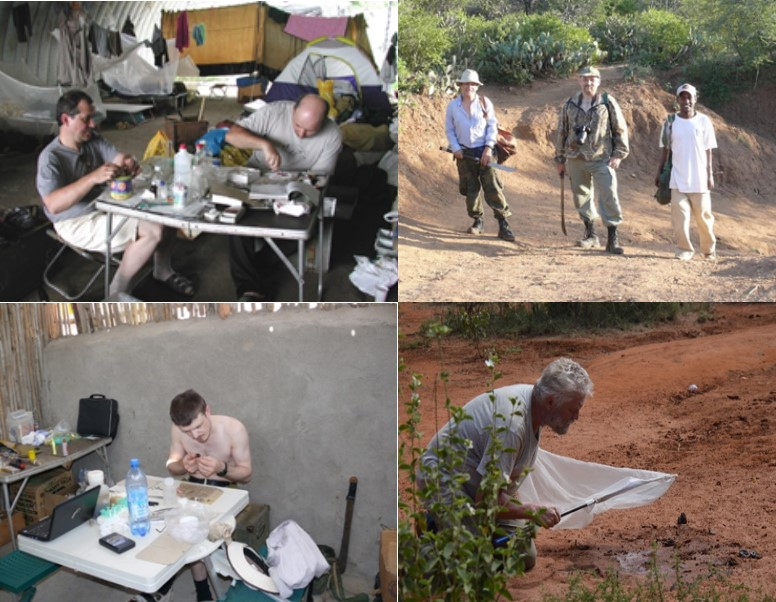
Preparations for the opening of the Joint Russian-Ethiopian Center for Biological Research in Ethiopia began thanks to the instructions of the President of the Russian Federation Vladimir Putin, but so far the project has not passed into the stage of practical implementation. This was announced at a meeting of the Presidium of the Russian Academy of Sciences by the Doctor of Biological Sciences, Professor, Academician of the Russian Academy of Sciences, Head of the Laboratory of Ecology of Aquatic Communities and Invasions of the A.N. Severtsov Institute of Ecology and Evolution RAS Yuri Dgebuadze in the report “Russian biologists in Africa: the experience of the Russian-Ethiopian expedition of the RAS”.
“The work has moved a little now, a package of documents has been prepared by the Academy, everything has been given to the ministry, but nothing has started yet, and funding has not been opened,” the head of the General Biology Section of the Biological Sciences Division of the Russian Academy of Sciences described the situation.
He recalled that the idea of organizing a new structure arose in 2017. It was assumed that the Joint Russian-Ethiopian Center for Biological Research (SRECBI) would be a new level of cooperation on the basis of the Joint Russian-Ethiopian Biological Expedition (JREBE), a long-term project of the Biological Sciences Department of the Russian Academy of Sciences in Ethiopia, which has been continuously operating for 35 years. The agreement on the work of the Expedition is periodically - usually every 5 years - renewed.
“The situation became critical in 2017, when, by decision of the intergovernmental commission, which was in 2016, the Ethiopian side proposed to raise our research to a slightly different level and create a special center for the study of biology in this country. Then the crisis situation was resolved, a delegation headed by Vice-President of the Russian Academy of Sciences A.V. Adrianov was sent, and it was found possible to extend this issue. But the issue was resolved in such a way that a joint Russian-Ethiopian center would be created. We have reported many times, the Academy of Sciences has written letters to all instances, we have reported at the Russia-Africa Public Forum 2018, which preceded the big Russia-Africa Summit. In addition, there were a lot of meetings at the Ministry of Education and Science of the Russian Federation, but unfortunately, everything stood still until July 5, 2021, when there was an instruction from the President of the Russian Federation V.V. Putin to create such a center”, the academic explained the background of the issue.
By the early 1980s, large-scale biological research outside the country (at that time the USSR) was carried out by the Academy of Sciences in Cuba, Mongolia, Vietnam and Peru. Their goal was to study biodiversity, lifestyle, evolution of living organisms, search for new genetic resources and biologically active substances, issues of biosafety and nature protection, and training of highly qualified national personnel. Africa remained outside the scope of academic biological research, and when such an idea was born, the Socialist Republic of Ethiopia was chosen for a number of reasons. Negotiations continued for three years, and in 1987 an agreement was signed on the creation of a Joint Soviet-Ethiopian Biological Expedition.
Yuri Dgebuadze briefly spoke about the main results of the work of its participants over the past decades, in particular about the study of the evolution of aquatic organisms: “The process of evolution is continuing before our eyes, there are very few such points in the world and such points have been found. This is Lake Tana, where we have studied 15 morphotypes of different levels of genetic differences, which are intraspecific and are of great, fundamental interest.”
Significant results were also obtained in the study of electric fish, aquatic and terrestrial invertebrates, and the naked mole rat used as a laboratory animal. “It turned out that this is not one species, it has a lot of genetic variability. Perhaps there are two types of them and we will have to find out which one people are studying here, including the aging process, in laboratories”.
The academic also recalled that over the past 100 years, 20 of the most dangerous viral infections of humans and animals have emerged, and a significant number of these diseases originate in Africa. One of the most important results of the work of the Expedition is the discovery of new pathogenic viruses that are especially dangerous for human health, the reservoir of which are species of small mammals. Together with the Banding Center of the IEE RAS, the ways of spring migration of birds were studied: about 150 species living in Russia, which are potential carriers of diseases, winter in Africa. Dozens of new species of invertebrates previously unknown to science, including pests of agriculture, have been documented, and studies have been carried out on historical ecology in high-mountain caves.
“We believe that the creation of the Joint Center for Biological Research requires all support possible,” Yuri Dgebuadze said in conclusion.
Russian biologists in Africa: experience of the Russian-Ethiopian biological expedition.
